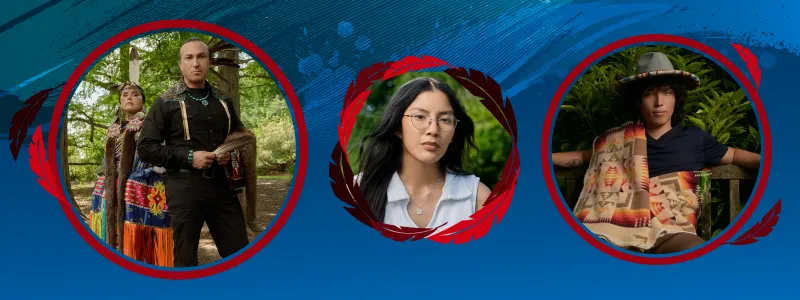
While human trafficking can occur to individuals of any age, gender, sexuality, nationality, and socio-economic class, Native American and Alaskan Native communities are disproportionately impacted by this crime. Traffickers exploit individuals experiencing vulnerabilities, including financial hardship, homelessness, and language or cultural barriers. Indigenous persons disproportionately experience these risk factors compared to other communities, putting them at a higher risk for all types of human trafficking.
Learn the facts:
- It is a common misconception that only persons who identify as or are perceived as women can experience sex trafficking. However, indigenous persons who identify as or are perceived as male are also at risk of experiencing sex trafficking. View the Investigating Labor Trafficking in Tribal Communities source.
- In Native communities, labor trafficking may occur across agricultural industries such as farming, orchard production, floral/forestry, fishing, livestock ranches, and dairy and food processing centers; construction; casinos; factories; within homes and professional cleaning services as forced domestic servitude; or in large-scale social events such as cultural festivals and sporting events. View the Investigating Labor Trafficking in Tribal Communities source.
Ways you can fight human trafficking in your community:
- Talk about it. Talk to your community and your community leaders about human trafficking. Have a conversation about how to recognize the signs and make a report. Create a space for others to become educated and understand human trafficking.
- Raise Awareness. Hang posters around your community to bring awareness to human trafficking. Share human trafficking hotlines with others who may recognize the signs of human trafficking or are potentially experiencing human trafficking themselves.
- Learn the signs. Be able to recognize the indicators of human trafficking. Learn how to contact local law enforcement directly or call the National Human Trafficking Hotline at 1-888-373-7888 or text HELP to BeFree (233733). By identifying individuals experiencing trafficking and reporting tips, you are doing your part to help law enforcement recover victims.
Resources
StrongHearts - StrongHearts has become a lifeline to Native American and Alaska Natives impacted by domestic and sexual violence by offering a culturally appropriate, anonymous and confidential service available 24/7 nationwide. By calling or texting 1-844-7NATIVE (762-8483), or chatting online at strongheartshelpline.org: survivors, family, friends and partners questioning their own behavior can connect with StrongHearts advocates who provide support and advocacy.
Pathfinder Center - Located in central South Dakota, Pathfinder Center is a 501c3 nonprofit Community Based refuge for victims of human trafficking.
Bureau of Indian Affairs - The Bureau of Indian Affairs’ mission is to enhance the quality of life, to promote economic opportunity, and to carry out the responsibility to protect and improve the trust assets of American Indians, Indian tribes and Alaska Natives.
Additional Resources:
About Blue Campaign
Blue Campaign is a national public awareness campaign designed to educate the public, law enforcement, and industry partners to recognize the indicators of human trafficking and respond appropriately. Learn more about how you can help.
To report suspected human trafficking to federal law enforcement, call 1-866-347-2423. If you are a victim of trafficking and need help, call the National Human Trafficking Hotline (NHTH) at 1-888-373-7888 or text HELP or INFO to BeFree (233733).
Important: Do not attempt to confront a suspected trafficker directly or alert a potential victim to your suspicions. Your safety as well as the victim's safety is paramount. Instead, please contact local law enforcement (9-1-1) directly or call the tip lines.



